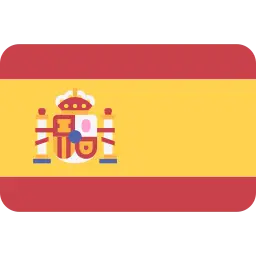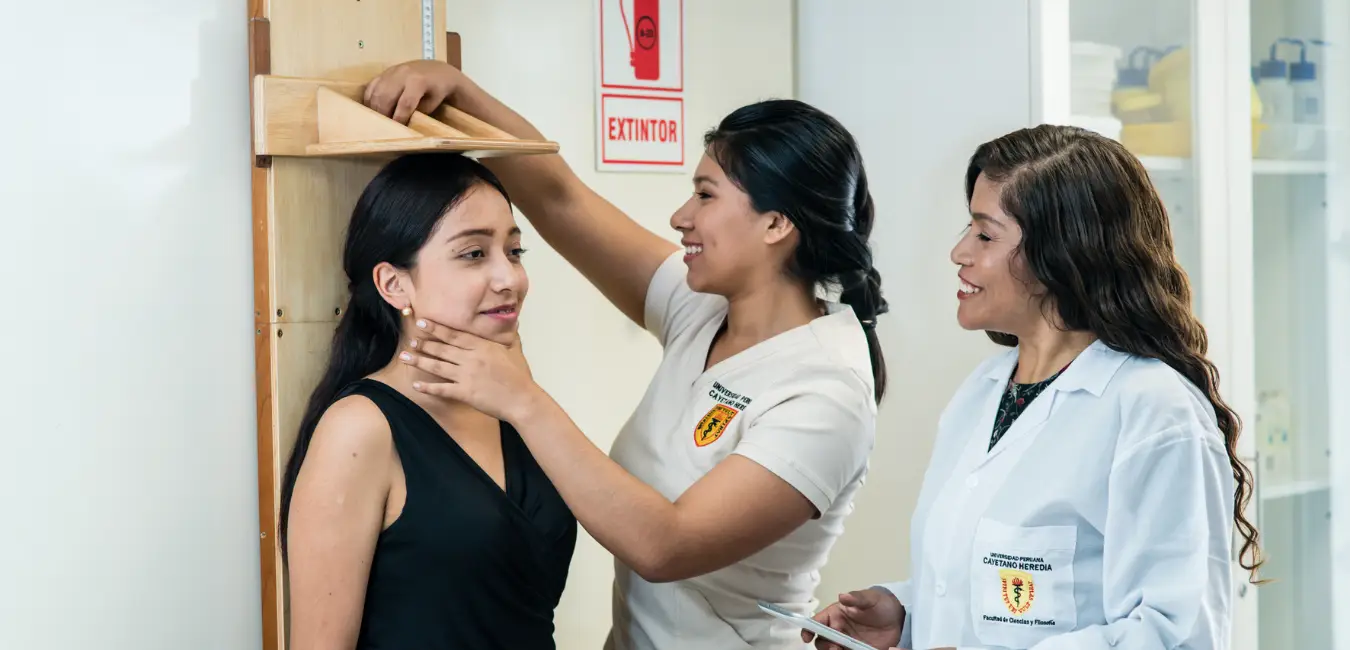Nutrition
Study the effect of food on people’s health
About the Nutrition Degree Course
The main efforts that nations seek to improve the quality of life of their populations are aimed at “ending hunger” and “ensuring healthy lives and promoting well-being for all at all ages”. In this regard, food and nutrition professionals play a key role in achieving these goals.
Cayetano’s future nutritionists are trained with the abilities, skills, and scientific competencies that will allow them to prescribe personalized diets considering the genetic factor that determines metabolism. They will also be able to implement food and nutrition education based on responsible consumption, selecting foods with environmental care in mind, thus contributing to people’s health and society’s welfare.
Faculty: Science and Engineering
Duration: 10 semesters (5 years)
Site: San Martín de Porres Campus
Degree earned: Bachelor’s Degree in Nutrition
Why choose us?
Generic Competencies of Graduate
Graduates integrate different types of thinking (scientific, logical, critical, systemic, and innovative) for the solution of complex problems through the mastery of cognitive skills such as logical reasoning in challenging situations. They are prepared to address present and future challenges in the exercise of their profession and to tackle the transformation of the environment as committed citizens
Graduates use verbal and non-verbal language to interact effectively in various inclusive, multicultural, and multilingual contexts. Also, they make conscious use of information and communication technologies. They join collaborative work teams to achieve common goals in multicultural, academic, and professional contexts. Moreover, they assume leadership roles with responsibility and respect for other people’s views.
Graduates act ethically and responsibly in different academic, professional practice, and research contexts. They carry out their work honestly, rigorously, and coherently in terms of their values: tolerance, openness, responsibility, environmental awareness, respect, democratic participation, and a sense of belonging.
Graduates creatively propose innovative solutions to solve a situation or problem; they demonstrate initiative and take action in improving their environments within the framework of values consistent with sustainable development: tolerance, openness, responsibility, environmental awareness, respect, democratic participation, and a sense of belonging.
Program Curriculum
*Curriculum subject to modifications as part of the curriculum update process.
Work Opportunities
Clinical Nutrition
They venture into clinical nutrition from private practice health centers and specialized institutes.
Public Nutrition
They participate in nutrition and public health through projects of international organizations, NGOs, and strategic alliances with institutions and civil society.
Food Safety
They participate in public and private institutions that provide sustainable food programs to contribute to the country’s food security.
Sports Nutrition
They guide the specific and personalized nutrition of athletes and people who choose sports as a healthy lifestyle.
International Agreements
Latin America
Argentina
- Universidad Juan Agustín Maza
- Universidad de Morón
- Universidad Nacional del Centro de la Provincia de Buenos Aires
- Universidad Nacional de la Plata
- Universidad de Mendoza
Brazil
- Universidade Federal do Minas Gerais
- Universidade do Sao Paulo
- Universidade do Estado de Rio de Janeiro
- Universidade do Sagrado Coracao
- Universidade do Vale do Paraíba
Chile
- Universidad de Concepción
- Clínica Las Condes
- Pontificia Universidad Católica de Chile
- Universidad de Antofagasta
- Universidad Mayor
Colombia
- Universidad de Antioquia
- Universidad Nacional de Colombia
Mexico
- Benemérita Universidad Autónoma de Puebla
- Centro de Investigación Científica y de Educación Superior de Ensenada
- Universidad Autónoma Metropolitana
- Universidad Autónoma del Estado de Morelos
Europe

Spain
- Universidad CEU San Pablo
- Universidad Miguel Hernández de Elche
- Universidad Pablo de Olavide
- Universidad de Valencia
Norteamérica
USA
- University of Kansas Medical Center
- University of Texas Medical Branch
Our testimonials
Yeesenia Chavez
Graduate
Studying nutrition at Cayetano has been a rewarding experience because it allowed me to strengthen the knowledge that exists between food and health, thanks to it, we can achieve behavioral changes in the population, participate in intervention projects for disease prevention and thus improve their quality of life. Thanks to this, we can achieve behavioral changes in the population, participate in intervention projects for the prevention of diseases and thus improve their quality of life. These activities must be accompanied with the vocation of service for a good performance and achievement of the objectives of nutrition.



